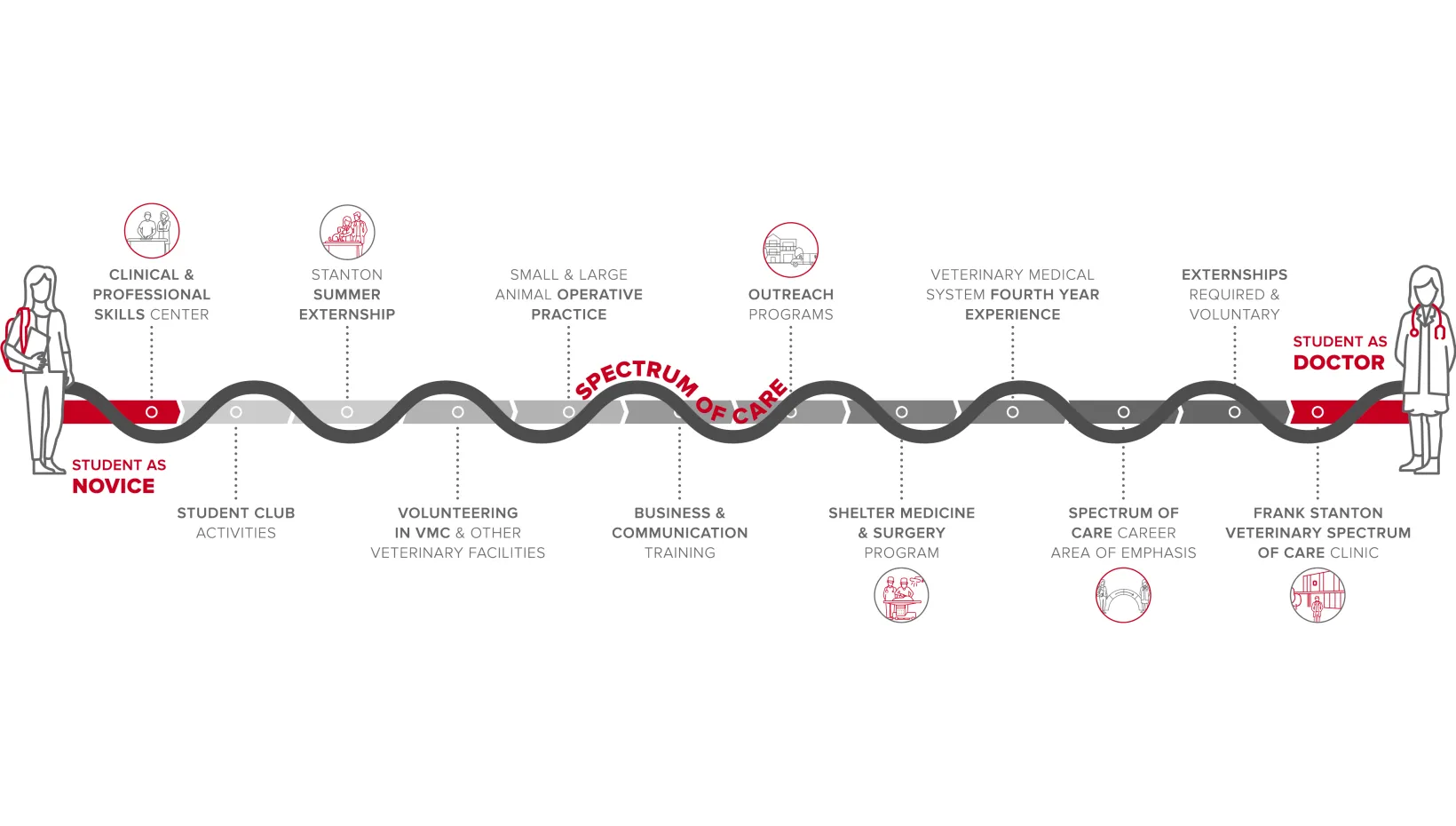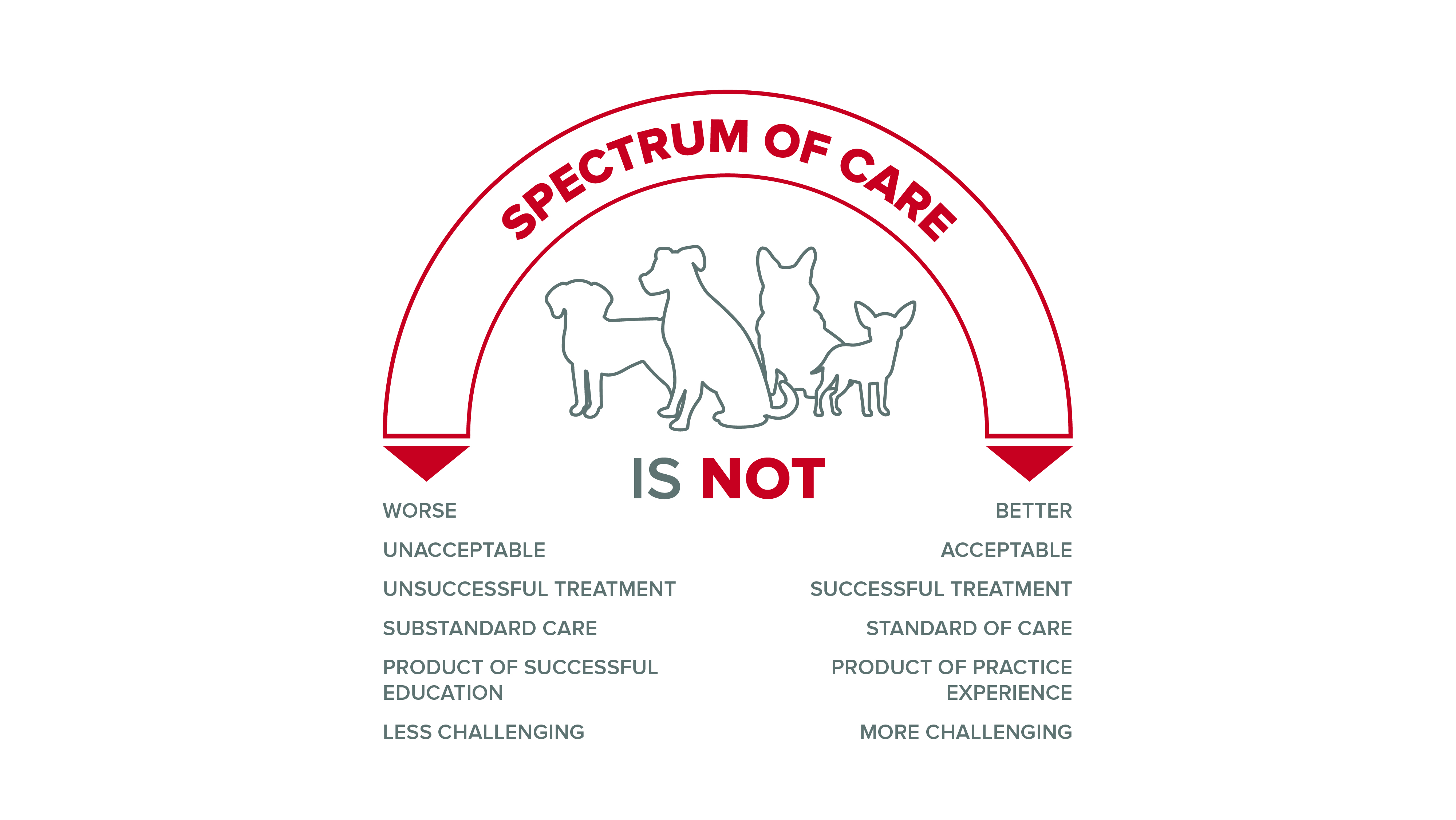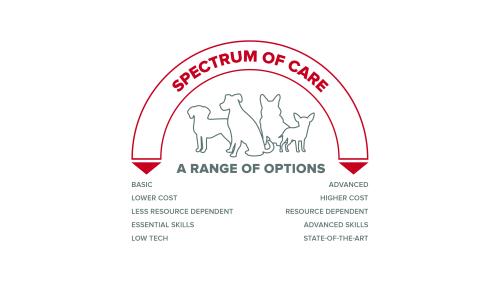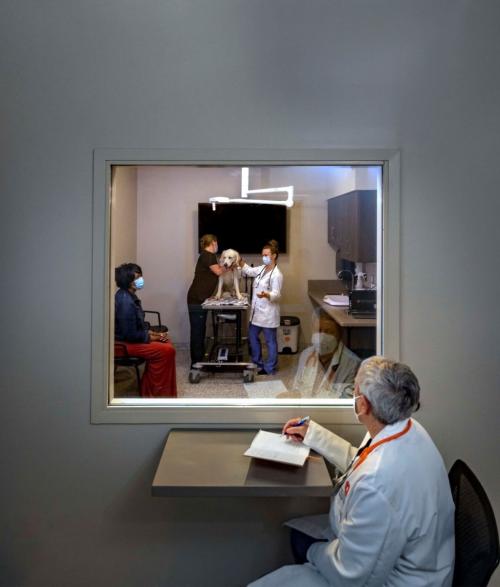Introducing the Spectrum of Care concept to better prepare practice-ready veterinarians

Article by: Allison Burk
Originally Published
The spectrum of care concept aims to address the growing problem of affordability of veterinary care by providing a continuum of acceptable care that considers available evidence-based medicine while remaining responsive to client expectations and financial limitations, thereby successfully serving an economically diverse clientele. Ideally, veterinarians should be able to provide several evidence-based options for care that encompass a wide variety of diagnostic and treatment modalities for patients and their owners.
How the college is implementing the spectrum of care concept into veterinary training
veterinary training
Traditionally, veterinary students at Ohio State have received much of their clinical training primarily by observing complex medical and surgical cases evaluated and treated in The Ohio State University Veterinary Medical Center by specialists who employ sophisticated and extensive diagnostic tests, imaging studies, and treatment procedures. This traditional educational model is vitally important and contributes significantly to a student’s knowledge of how to manage cases. However, input from faculty, students, practitioners and alumni has suggested a need to shift the curriculum to emphasize hands-on clinical opportunities across a broad spectrum of cases, including more training in business, effective communication skills and other non-technical competencies.
To meet those needs, the college is shifting its curriculum to weave the spectrum of care concept into all four years of our student’s veterinary training. Implementing the spectrum of care concept will allow students to understand how to provide the broadest range of possible treatment options for the broadest range of clients under the broadest set of circumstances.
“The spectrum of care concept is a critical construct for students to learn about how to think outside the box and be extremely resourceful. With this concept integrated early in the curriculum, the goal is to teach our students to be innovative, to be creative and to think more broadly about how they can manage and treat a wide variety of cases and best meet the needs of diverse clientele,” said Emma Read, DVM, MVSc, DACVS, associate dean for professional programs. “Students will then be able to apply that out-of-the-box critical thinking as they go out into practice settings starting day one.”
The goal of this educational approach is to ensure that veterinary graduates entering private practice have the competence and confidence to provide more in-clinic treatment and to offer a variety of treatments for pets that belong to pet parents across a wide-ranging socioeconomic spectrum. Ohio State’s College of Veterinary Medicine students will gain knowledge and mastery of a broad array of diagnostic, therapeutic, business and communication skills needed for practice success.
What spectrum of care-focused training means for graduates entering the general practice setting
New graduates frequently have difficulty making the transition to a general practice setting in which the financial limitations of a more diverse clientele necessitate selectivity in the choice of tests and treatments. Furthermore, if the new graduate has experienced case management primarily in a tertiary referral setting, they may have a harder time understanding that other approaches are appropriate and acceptable in a general practice setting.
And because more than half of Ohio State’s College of Veterinary Medicine graduates enter general practice each year, merging these two components with a redesigned curriculum ensures that Ohio State’s veterinary students will be even more competent and confident upon graduation.
“Spectrum of care will be integrated throughout all phases of Ohio State’s veterinary program, from the first semester until the end of the fourth year,” said Rustin Moore, DVM, PhD, DACVS, dean, College of Veterinary Medicine and Ruth Stanton Chair in Veterinary Medicine. “This concept will provide learning experiences for students to gain day-one practice skills through compassionate community care, including public education and care for animals of underserved populations, furthering our ambition to Be The Model®,” Moore said.

